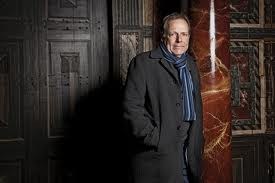Originally published by L.S. Media. May 11th 2012
L.S. Media Rating ****
It was a time of turmoil, political instability, plots, attempted assassinations, plague and unheard of unions and William Shakespeare was there to capture it all.
American Scholar James Shapiro’s insightful look at the decade between King James III coming to the English throne after the death of the much loved Queen Elizabeth, and William Shakespeare finally retiring to his beloved Stratford-Upon- Avon, was captured over the course of three programmes titled The King and The Playwright.
Where arguably Shakespeare could be said to look favourably upon the time of Queen Elizabeth, easier to keep one’s head and be the Elizabethan version of the greatest P.R. representative of the times and Tudor dynasty, in The King and The Playwright, James Shapiro looks at the years between 1603 and 1613 and makes no apologies for the assertion that comes across to the viewers that, even though he had royal patronage thrust upon him, the later plays that Shakespeare penned were a thin cynical series of written assassination attempts on the King.
From the King’s unpopularity, the founding of a new coin to usher in union between Scotland and England to the King’s bisexual relationships and even losing three of his children in early life, including Henry the Prince of Wales, all these events were written down and changed into dramatic and life changing plays called Macbeth, written a short while after the attempt on the King’s life by Guido Fawkes and the other men behind the Gunpowder Plot to The Tempest and The Winter’s Tale. As a King’s Man, a high position for a lowly glove maker’s son from Stratford, Shakespeare would have seen it all and presenter James Shapiro’s intelligent analysis of the times and deconstruction of parts of the text made excellent viewing.
Where the three part B.B.C. series benefited most was by including scenes taken from plays at the R.S.C. and The Globe Theatre in London, alongside the obvious glee that James Shapiro was holding in as he was allowed privileged access to some of the early writing and folios made for excellent television. The drama and intrigue was palpable and opened up a new area for viewers whose interest in Britain’s greatest ever playwright had stopped.
Ian D. Hall

